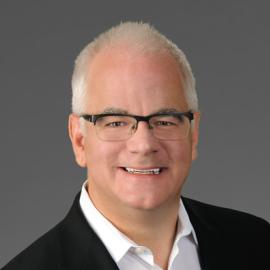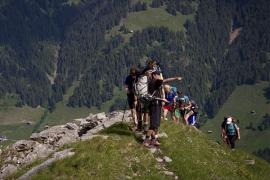
Various journalists project that the most significant 2023 business trends involve digital transformation. Real-time business solutions are combining technologies such as blockchain, the internet of things, virtual reality, augmented reality, cloud computing, and super-fast networking protocols to enhance each other.
All this progress brings us closer to integration of these technologies into so-called “intelligent enterprises” (Tzikakis, 2019) that help businesses sharpen decision-making and automate tasks, so employees can focus on human-skills-centered strategic and creative pursuits.
All this exciting tech innovation is tempered by ongoing inflation, subdued economic growth, supply chain issues, and continued talent challenges. Businesses are being cautioned to do all they can to increase operational resilience. This means mapping out their supply chains, improving the customer experience, and offering people fulfilling work and growth opportunities in flexible, value-oriented workplaces. From my perspective, an important part of operational resilience is not only training employees to work with smart machines, but also helping to develop their unique human skills — those one can’t automate. Companies need thoughtful communicators who know how to form and maintain healthy relationships; how to think critically to solve problems; and who are self-aware as well as empathetic toward others.
Jennie Yang, vice president of people and culture at 15Five, sized up the human needs of today’s economy in a recent Fast Company article (2023):
"The outside world is struggling with uncertainty, chaos, and fear. But suppose we embrace and develop the human skills of empathy, effective communication, resilience, and critical thinking. This can ground us, allowing us to maintain our stability and serenity and redirect our energy toward helping colleagues and our organization meet their goals during challenging periods."
This is where the field of camp comes in. Not only in response to an entire generation’s eroded mental well-being and the developmental delays caused by the COVID-19 pandemic, but also for the foundational knowledge, soft skills, and caring young people learn and practice at camp — which are vital for a thriving career. Business leaders cannot focus solely on accelerated digital transformation trends. To be globally competitive, a workforce transformation is also needed to upskill current and future generations of young people. We must help them to adopt a growth mindset; to engage in collaborative problem-solving; and to be more inclusive, cross-culturally agile, and adaptable. Safe, healthy, quality camp experiences are an integral part of this shift toward a human-skills-centered economy.
In the year ahead, we must all work together to help business leaders and the greater public understand the extraordinary value of attending and working at camp from a workforce development perspective. So many business leaders I have met articulate how much they value job applicants who have worked at camp and fondly remember the friendships, love, and learning from their own camp days. Camp is a diverse and inclusive human-driven community where young people learn to authentically experience new and challenging opportunities; collaborate with peers who have different perspectives; learn to be more self-aware and empathetic; and practice critical-thinking skills. For many of us, our time at camp taught us to define our values, honed our hopes and dreams, and strengthened our identities through deep social connections.
Brené Brown said, “Vulnerability is the birthplace of love, belonging, courage, empathy, and creativity. It is the source of hope, empathy, accountability, and authenticity. If we want greater clarity in our purpose or deeper and more meaningful spiritual lives, vulnerability is the path” (2015).
Through camp, we are helping generations of youth learn to be vulnerable and leverage their human skills and dispositions to harness the transformative digital technologies of today’s economy to strengthen society and lead with humanity in “intelligent enterprises.”
References
- Brown, B. (2015). Daring greatly: How the courage to be vulnerable transforms the way we live, love, parent, and lead. New York, NY: Avery.
- Tzikakis, S. (2019, April 19). What does it really mean to enable the intelligent enterprise? Forbes. forbes.com/sites/sap/2019/04/19/what-does-it-really-mean-to-enable-the-intelligent-enterprise
- Yang, J. (2023, January 1). These are the essential human skills needed for 2023. Fast Company. fastcompany.com/90826149/essential-human-skills-needed-for-2023


